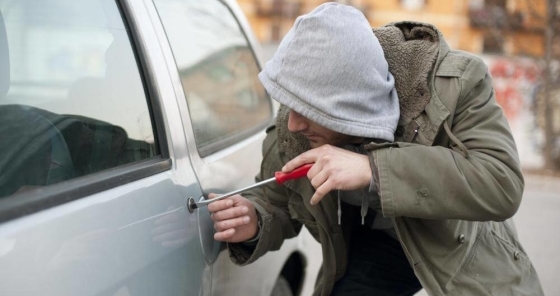Understanding Grand Theft in Los Angeles (Penal Code 487 PC)

Theft is one of the various property laws criminalized in California. It is often referred to as larceny.
Theft can occur in various circumstances and the punishment will range depending on the property that has been taken.
Theft can involve tangible personal property, real property or money. Theft is defined as the unlawful taking of another’s property. Practically speaking, this means that in order to prevail the prosecution must prove that the defendant took the property and intended to permanently deprive its owner of it.
The California Penal Code divides larceny into 2 degrees: petty theft (PC § 484(a) and PC § 488) and grand theft (PC § 487).
The degree is determined based on the value of the property that has been stolen. Grand theft is a more serious offense, carrying harsher penalties, while petty theft involves lower valued property.
Misdemeanor Grand Theft
If the value of the property stolen is valued at more than $950 then a grand theft charge is triggered. Like many crimes in California, grand theft is a wobbler, meaning it can be charged as either a felony or a misdemeanor.
A conviction for misdemeanor grand theft carries a punishment of up to 1 year in the county jail. Depending on a defendant’s criminal history, the circumstances of his/her case, and any mitigating facts his/her defense attorney may offer, a defendant can still receive a probationary sentence which could last anywhere between 1 year and 3 years. If probation is given the defendant would have to pay restitution and perform community service and adhere to any other conditions of probation imposed.
Felony Grand Theft
Felony grand theft carries a punishment of up to 3 years imprisonment. Again, depending on the defendant’s criminal history and the facts and circumstances of the charge, felony probation might be available. However, if the theft involved use of a weapon or any threat of violence a defendant would likely not be a probation candidate.
Violent crimes and crimes involving a gun or weapon are excluded from probation consideration. Also, if the grand theft involves taking over $100,000, a defendant is excluded from probation. Felony probation, like misdemeanor probation, requires payment of restitution and community service. However, felony probation has many more requirements such as meeting with a probation officer and keeping him/her informed and submission to drug testing, among other things. Felony probation lasts between 3 -5 years.
Determining Felony vs. Misdemeanor
Because grand theft is a wobbler, the state can charge it either as a felony or misdemeanor. So how do they determine which to charge? Once it has been determined that the property value exceeds $950, what triggers a misdemeanor or a felony grand theft charge?
The determination of whether grand theft is charged as a misdemeanor or a felony is based on several factors. The prosecution will look at the defendant’s criminal history; whether he has a long history of convictions and whether they are property-related or theft-related offenses.
They will also look at the facts surrounding this charge and how it was carried out; if there was use of a weapon or threat of violence involved, if it was premeditated and calculated. If the theft was carried out with other crimes such as embezzlement the state may charge a felony versus a misdemeanor. Also if the victim was injured, which would likely trigger more charges, this could push a felony charge verse a misdemeanor.
Another factor is the quality and sufficiency of the evidence against you. If the prosecution feels they have a strong case they will charge a felony. On the other hand, if they are missing some evidence or know that there is a strong defense they may only charge a misdemeanor.
Seek Experienced Counsel
If you are facing a grand theft charge in Los Angeles or surrounding counties you need the experience and skill of a criminal defense attorney who can obtain the best outcome for your case. As a team of former prosecutors, The Rodriguez Law Group knows the court system and knows the law. We can speak with you about your case and explore any available defenses in making sure you to negotiate the best outcome or defend your rights in court. Please contact our office today to discuss your case.
To learn more, call our Los Angeles criminal defense law firm at 213-995-6767 or visit our contact us page to send us an email.


